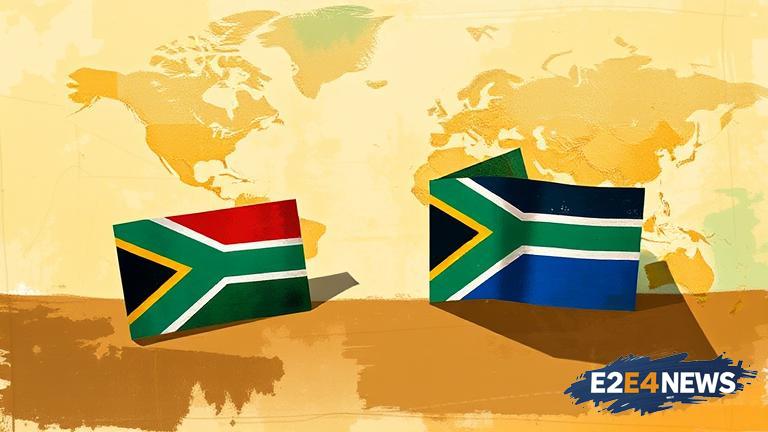South Africa’s foreign policy has been making headlines in recent months, with the country’s leaders walking a tightrope between maintaining good relations with global powers and asserting its own interests on the world stage. As a key player in African politics, South Africa’s diplomatic efforts have significant implications for the continent and beyond. However, experts warn that the country’s approach to global politics is fraught with risk, and that a more nuanced and strategic approach is needed to succeed. One of the key challenges facing South Africa is its relationship with major world powers, including the United States, China, and Russia. While the country has historically enjoyed good relations with these nations, its recent diplomatic overtures have raised eyebrows and sparked concerns about its loyalty and commitment to democratic values. Despite these challenges, South Africa remains a crucial player in regional and global affairs, and its diplomatic efforts have the potential to shape the course of international relations. To succeed, the country must take a number of steps, including strengthening its diplomatic corps, investing in international relations, and developing a clear and consistent foreign policy framework. Additionally, South Africa must navigate the complex web of global alliances and rivalries, balancing its relationships with major powers while also promoting its own interests and values. This will require a delicate balancing act, as the country seeks to maintain good relations with nations that often have competing interests and agendas. Furthermore, South Africa must also contend with the challenges posed by emerging global trends, including the rise of nationalism, the growing importance of non-state actors, and the increasing complexity of international relations. In order to navigate these challenges, the country will need to develop a more sophisticated and nuanced understanding of global politics, as well as a more effective and efficient diplomatic apparatus. This will require significant investment in diplomatic training and capacity-building, as well as a greater emphasis on strategic planning and foresight. Moreover, South Africa must also prioritize its relationships with other African nations, recognizing the importance of regional cooperation and solidarity in achieving its foreign policy goals. By working closely with its African partners, the country can help to promote peace, stability, and prosperity on the continent, while also advancing its own interests and values. At the same time, South Africa must also be mindful of its global responsibilities, recognizing the importance of contributing to international efforts to address pressing global challenges, such as climate change, poverty, and inequality. To achieve this, the country will need to engage more actively in international institutions and forums, using its diplomatic influence to shape global agendas and promote its own priorities. Ultimately, the success of South Africa’s diplomatic efforts will depend on its ability to navigate the complex and often treacherous landscape of global politics, while also remaining true to its values and principles. By taking a more strategic and nuanced approach to international relations, the country can help to promote peace, stability, and prosperity, both at home and abroad. With its rich history, diverse culture, and vibrant economy, South Africa has the potential to play a major role in shaping the course of global events, and its diplomatic efforts will be closely watched by nations around the world. As the country continues to evolve and grow, its approach to global politics will remain a key factor in determining its success and influence on the world stage. In conclusion, South Africa’s approach to global politics is a high-stakes endeavor that requires careful planning, strategic thinking, and a deep understanding of the complex forces that shape international relations. By taking a more nuanced and sophisticated approach to diplomacy, the country can help to promote its own interests and values, while also contributing to a more peaceful and prosperous world. The country’s diplomatic efforts will be shaped by a range of factors, including its relationships with major powers, its engagement with international institutions, and its commitment to democratic values and human rights. As South Africa continues to navigate the complexities of global politics, its leaders will need to remain vigilant and adaptable, using their diplomatic skills and influence to promote the country’s interests and advance its values. The future of South Africa’s diplomatic efforts will depend on its ability to balance its relationships with major powers, while also promoting its own interests and values. The country’s leaders will need to be strategic and nuanced in their approach, recognizing the opportunities and challenges of global politics and using their diplomatic influence to shape the course of international events.
